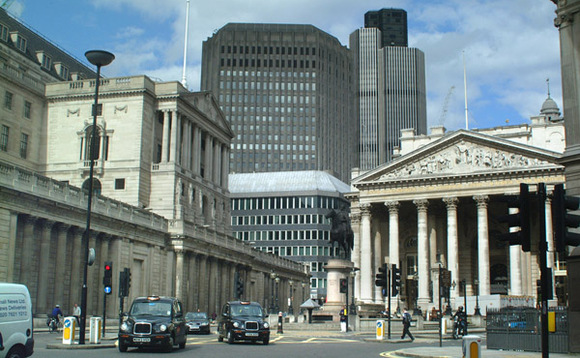The Bank of England has today hiked interest rates by 0.25% in its fourth consecutive rise, bringing them to their highest level since 2009.
The bank's Monetary Policy Committee voted by six to three to raise interest rates to 1%, with the minority voting for a greater increase to 1.25%, as it reported that inflationary pressures have "intensified sharply" in recent months.
UK inflation accelerated to a new 30-year high in March, reaching 7% from 6.2% in February, primarily due to the shock in energy prices.
Inflation is now predicted to rise to over 9% in this quarter, before peaking at "slightly over 10%" at the end of the year.
The bank said that this was largely due to "higher household energy prices following the large rise in the Ofgem price cap in April and projected additional large increase in October," which meant that inflation will likely peak later in the UK than other countries, and therefore may also fall back later.
US Federal Reserve makes first 0.5% interest rate hike since 2000
The bank also reported that UK GDP is estimated to have risen by 0.9% in the first quarter of this year, stronger than expected by the bank in February. However, GDP is now expected to "slow sharply," with real household disposable income projected to fall by 1.75% in 2022, greater even than the dismal figures the bank had predicted in February.
Furthermore, it stated that while unemployment has fallen to 3.8% and is forecast to continue to drop slightly, "it is expected to rise to 5.5% in three years' time given the sharp slowdown in demand growth".
Hinesh Patel, portfolio manager at Quilter Investors, said that: "Today's move resembles shuffling deck chairs on the Titanic."
Fixed income experts warn 'there is nothing central banks can do to impact inflation'
"With the significant economic impact of the Russia-Ukraine war alongside a multitude of other global risks and plunging consumer confidence, growth will no doubt be challenged, and the bank may be forced to stop tightening even as soon as this year."
"For now, however, it must continue on its path to prevent sterling devaluing further and intensifying the household squeeze. Savings rates could improve following this rate rise, though will only be marginal offset the cost of living crisis currently being faced.
"With the Fed moving harder with rates yesterday evening, many will have hoped to have seen the same from the BoE today. With inflation continuing to soar, the Bank risks doing too little too late. While the BoE may be putting up a confident front, given the current delicate market environment, we could easily see inflation continue to rise above the BoE's forecasts."










